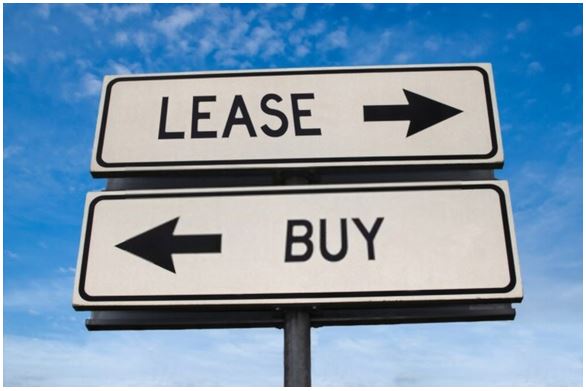As your business continues to grow, your everyday business needs also increase. You may need to visit clients, vendors and to run daily chores. As such, owning a business vehicle becomes more of a requirement than a need. But should you buy one or lease it?

Taking all considerations into account, it makes more sense to lease a vehicle only if you intend to use it for not more than three years, don’t intend to make a large financial commitment, or if you do not want to put excessive mileage on it.
However, if you are comfortable with the price tag on a vehicle and have a long term plan of owning one for at least five years, then you should consider purchasing one. But as with most life decisions, the best option depends on your unique circumstances. To help you come to a decision, here are some questions you should answer to make your decision-making process easier.
How do you plan to use the vehicle?
There are certain restrictions put in place for leased vehicles that you intend to use for business purposes. A leasing company can dictate when and how to use a vehicle, posing a problem when you want to visit some of those areas.
Before you can lease any vehicle, you should ensure that you can use it for business. Some leases may prevent you from using the vehicle to make money or perform certain businesses such as joining Uber.
Some other leasing companies are very strict on the mileage requirements making leasing a vehicle very expensive. Additionally, you may have to pay for any damages inside a car once you complete the lease.
How many miles do you plan to put on the vehicle?
The distance you travel and the miles you plan to rack up can affect if you can receive a car lease. Normally, leases only allow a maximum of about 12,000 miles per year. Therefore, when you return the car, the number of miles on it should not exceed 12,000 miles.
Some leases can give you an allowance of 3000 more miles. Exceeding the number of miles a leasing company sets may result in you paying a certain fee for every mile. It, therefore, can become a very expensive venture.
Purchasing a vehicle is different. You do not have to worry about the distance your travel or the miles you accumulate. You only need to have enough fuel for your journey. Therefore, always remember to carry a small manual fuel transfer pump as it can come in handy.
How much can you raise for a down payment?
It’s important that you determine the amount of money you need to make a down payment when leasing. Depending on the company offering the lease, you may have to pay a small amount of money or none at all when you sign the contract. However, you should note that the lower the down payment, the higher the monthly installments you have to pay.
There are benefits to both leasing and buying a vehicle to use for your business. By leasing, your monthly fees are accounted for as a tax-deductible in your business expense. Additionally, you do not have to cater to repairs and maintenance, and you don’t have to worry about how you will dispose of the vehicle once you are done using it.
On the other hand, when you purchase the vehicle, there is no mileage limitation preventing you from driving as much as you want. Additionally, you can customize it to whichever way that pleases you. You do not have to buy a new vehicle if you have a capital limitation. Buying a used van is also an option provided; it is still in good shape.

No comments yet.